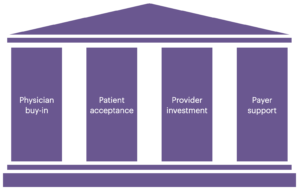Great Expectations is a 1998 American romantic drama film. A contemporary film adaptation of Charles Dickens’s 1861 novel of the same name, co-written and directed by Alfonso Cuarón, it stars Ethan Hawke, Gwyneth Paltrow, Hank Azaria, Robert De Niro, Anne Bancroft and Chris Cooper. It has box office revenues of $55 million on a budget of $25 million.
Not his best work as a director, Cuarón has received 11 Academy Award nominations, winning Best Director for Gravity (overrated?) and Roma (liked it a lot).
I have already written about Quantum Rubbish (see Quantum Serenity and 2022 Tayur Prize), even before the recent CBS 60 minutes episode that begins with “Artificial Intelligence is the magic of the moment, but this is the story about what’s next”:
Ikes! (Ok, to be fair, Dario Gil did say it is like being in 1940s and 1950s.)
Magic Mike is a 2012 American comedy-drama film directed by Steven Soderbergh and starring Channing Tatum, Alex Pettyfer, Matt Bomer, Joe Manganiello, and Matthew McConaughey. It has box office revenues of over $167 million (on a budget of $7 million).
I began following the work Soderbergh (including Erin Brockovich, Traffic, Ocean’s trilogy, Logan Lucky) after seeing his (directorial debut) film (at the Ithaca Commons Indie Film Theater, while I was a PhD student at Cornell, see Portrait of an Academic Capitalist as a Young Man):
Sex, Lies, and Videotape (often written in all lowercase as sex, lies, and videotape) is a 1989 American independent drama film written and directed by Steven Soderbergh. It won the Palme d’Or at the 1989 Cannes Film Festival. It has a box office of over $36 million (on a budget of $1.2 million).
Let me move to Healthcare AI. About a year ago, Tinglong and I wrote this invited article (and introduced a framework with Four Pillars):
Designing AI-augmented healthcare delivery systems for physician buy-in and patient acceptance.

A recent NEJM article indicated that while over 500 AI-devices have been FDA approved, only a handful are actually in use:
Characterizing the Clinical Adoption of Medical AI Devices through U.S. Insurance Claims.
There are now over 500 medical artificial intelligence (AI) devices that are approved by the U.S. Food and Drug Administration. However, little is known about where and how often these devices are actually used after regulatory approval. Our results indicate that medical AI device adoption is still nascent, with most usage driven by a handful of leading devices. For example, only AI devices used for assessing coronary artery disease and for diagnosing diabetic retinopathy have accumulated more than 10,000 CPT claims.
Repurposing Mark Twain:
The rumors of Magic of AI in Healthcare are greatly exaggerated.
That is why I was very excited to receive this recent update from Neotribe Ventures (where I am a LP) about a portfolio company Pearl (the first, and it appears to be still the only, dental AI software to be FDA approved):
Patterson Dental Selects Pearl as New Integrated AI Provider.
“With a mission to be the most trusted partner within the dental industry, we are committed to bringing our customers new products that streamline operations, optimize efficiency and maximize profitability,” said Tim Rogan, President of Patterson Dental. “With Pearl as our new AI provider, we are doubling down on our efforts to offer new solutions that transform practice performance by equipping our users with dentistry’s most powerful AI-backed technology.”
Last year, Pearl’s chairside x-ray evaluation and case presentation software, Second Opinion®, became the first dental AI software authorized by the FDA to help dentists detect numerous conditions commonly diagnosed in x-rays of adult teeth in patients 12 and older. Dentists using Second Opinion® gain a range of benefits, including:
- 37% more accurately detected pathology in patient x-rays, on average
- 24% higher case acceptance for restorative, endodontic and periodontic treatments, on average
- 71% greater patient trust in diagnoses
The company’s clinical performance platform, Practice Intelligence®, extends the benefits of AI beyond the dental chair––synthesizing AI clinical findings with patient treatment data automatically synced from practice management systems to deliver actionable insights that drive operational efficiency, clinical excellence, and practice growth.
“We developed our breakthrough AI technology to transform the quality, accuracy, and consistency of dental care,” said Ophir Tanz, founder and CEO of Pearl. “Together with Patterson, we will dramatically accelerate the rate of that transformation — and, as an integrated offering within some of dentistry’s most widely used and trusted practice management systems, enable the most efficient AI-powered clinical workflow for thousands of dental practices across the US.”
As Founder/CEO of SmartOps, I did know the value of press releases: here are three (Bayer, HP, Cabot) that I could find almost immediately as I was writing this. One of the themes that I discuss in my MBA class is the concept of scaling, and whether it should be done with a channel partner, like we did with SmartOps. My observation is that creating (software) products (or apps, AI/ML or not) has become easier, can be done with far less capital, and is being done by thousands of folks every day around the world. The challenge, however, is (and has always been) in how to market and sell it profitably at scale.
As I wrote previously in Slumming It? (an homage to Mark Twain‘s Roughing It!):
Having a great product is necessary, but not sufficient.
It is also a theme in my recent invited article (BOPE is Business Optimizing Professor Entrepreneur, a variation on Academic Capitalist, a play on Obama’s book😏):
Management Mathematics: The Audacity of BOPE
Can mathematical research from a business school professor that is published in academic journals also substantially improve actual industrial practice in global supply chains? Yes. Can mathematics and operations management help improve fairness in access to organ transplants? Yes, again. Can mathematics developed for business applications facilitate the development of new types of quantum hardware? Also, yes. I have three main messages in this invited essay: (1) free yourself from self-imposed constraints and explore a wider range of new problems and arcane mathematics; (2) be bold and imaginative in developing novel solutions and (3) implement your ideas in practice, scaling them with a channel partner.
Speaking about MBAs (a co-founder was in my class) and AI in Healthcare, here is one startup at CMU’s Swartz Center that caught my attention:
Back to media exaggerations. Let me close with another Mark Twain quote (without modification!) on media articles on quantum computing and AI in Healthcare:
If you don’t read the newspaper, you’re uninformed. If you read the newspaper, you’re misinformed.






